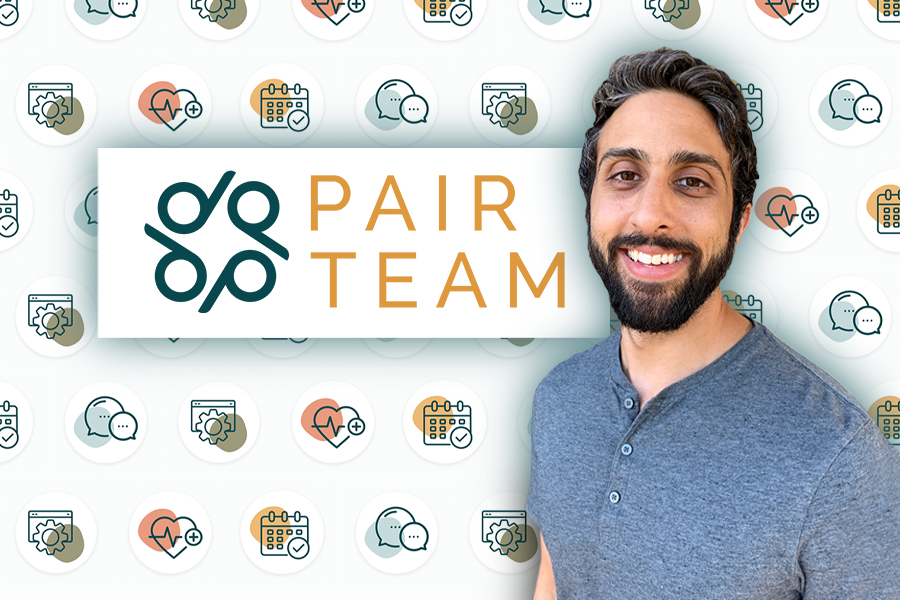
Helping the Helpers
By Elizabeth Speed
“The truth is that the primary care system in the United States is really broken, and the burden for it falls on doctors,” says Neil Batlivala, who graduated from Carnegie Mellon’s School of Computer Science in 2014. “Managing the health of a population puts an enormous burden on primary care doctors, and without help, they’re really struggling.”
A solution to this challenge started to come to fruition when Neil, a computer scientist who minored in computational biology, teamed up with a nurse, Cassie Choi. She shared the dream of shaking up the status quo, taming the chaos of primary care and using a technological twist to refocus medical practices on health outcomes. Together, they founded Pair Team in 2019, and today, they are working with thousands of Medicaid patients and underserved communities to help address unmet care needs.
“Cassie taught me how to draw blood, we practiced on oranges. And I taught her how to debug a JavaScript console,” he says of their complementary partnership and roles in founding the health-tech startup.
Their balance created a new vision for independent doctor’s offices — especially those with high numbers of Medicaid patients where the needs are big and the profit margins barely exist. Through Pair Team’s platform, doctors have easy access to care recommendations while meeting with their patients, and the technology behind it frees doctors up to focus on patient conversations. On the backend, additional administrative support comes in the form of automated clinical operations and help from a team of care navigators, who are akin to customer service representatives, engineers and operations experts. By simplifying workflow and removing the stress of administrative tasks, clinicians can focus on patients in the clinic.
“The pressure to proactively manage a patient population while meeting quality benchmarks for financial incentives is meant to improve outcomes, but it amounts to a broken system where all of the responsibilities fall on the doctors,” Neil says. “Our model is built to wrap around existing clinics and automate operations to ensure evidence-based standards of care are met. We have proven ourselves during COVID-19 by tripling the rate of preventative care visits for our clinics while increasing revenue by 16% through quality-of-care incentives.”
"Cassie taught me how to draw blood, we practiced on oranges. And I taught her how to debug a JavaScript console."
The interest in health care started early for Neil, who flirted with the idea of becoming a doctor before realizing he could make a larger impact with his technological talents.
“I grew up in Singapore and India, and that's where my ideas about how I want to spend my time formed. Doing community service in Delhi, we had a nursing station, and I was drawn to medical needs,” Neil says. “I knew I wanted to work in health care, but I didn't know that I wanted to be a computer scientist. I thought about medical school before I realized that I'm actually better at computer science than I am on the biology side. It’s where work becomes play for me, so I stuck with technology.”
Neil’s passion for computer science was, of course, unleashed during his undergraduate experience at Carnegie Mellon.
“CMU gave me the technical skills, but they also gave me a way to think,” he says. “They teach students to approach the world, look at problems and make an impact. Health care is a very complex system, and CMU taught me how to reduce problems to a handful of organizing principles. There are a lot of surface-level problems that I see people trying to solve, but to make real impact, you have to ask more broadly 'why does the system work the way it does.’”
“CMU put that foundation of critical thinking that allowed me to get where I am.”